
Focusing丨在FLIS, 我们如何开展中文教学?
FLIS Mandarin Department
在福州西湖国际学校,语言是了解和融入多文化的工具。在这里,学生不仅能够习得纯正的英语,更能在完善的中文课程和课外实践中显著提高自己的语言文化能力。
At Fuzhou Lakeside International School, language is a tool for understanding and integrating into multiple cultures. Here, students not only learn pure English, but also significantly improve their linguistic and cultural skills through a well-developed Mandarin curriculum and extracurricular practice.
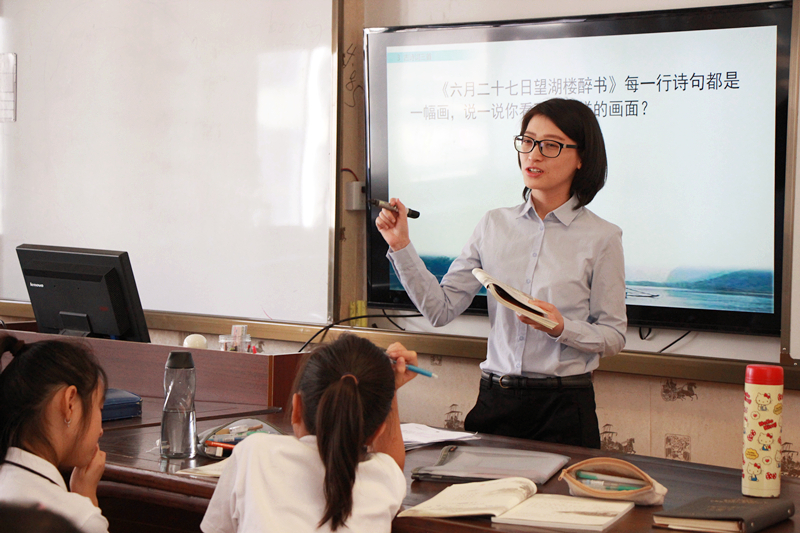
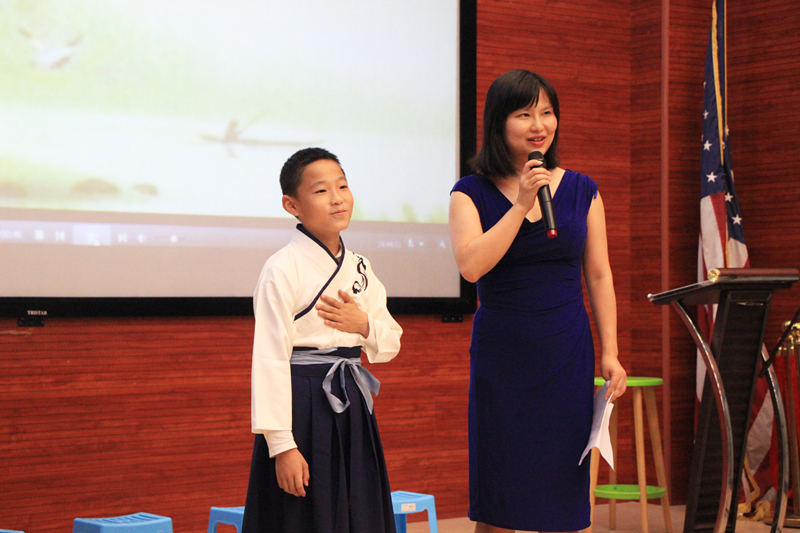
我们的中文课程分为三部分:中文为非母语的对外汉语课程(CFL)、华裔学生的中文课程(TSL)和中文为母语的语文课程。
Our Mandarin curriculum is divided into three parts: CFL (Chinese as a Foreign Language), TSL (Teaching Chinese as a Second Language), and Chinese as a Native Language.
中文为母语的语文课程参照教育部修订的最新版大纲,在全国通用教材的基础上结合校本教材进行教学。从中华优秀传统文化中获取积淀,从《诗经》到清代的诗文,从古风、民歌、律诗、绝句,到词曲,从诸子散文到历史散文,从两汉论文到唐宋古文、明清小品,均有收录在课程之中。该课程的总目标是培养学生的语文核心素养,使学生学习的主体性得到尊重。在学习语言文字运用的过程中,建构语言运用机制,增进语文学养,努力学会正确、熟练、有效地运用中文语言文字。通过学习语言的运用,学生能够获得几种思维能力的发展和思维品质的提升。学生通过审美体验、评价等活动形成正确的审美意识、健康向上的审美情趣与鉴赏品位,并在此过程中逐步掌握表现美、创造美的方法;继承和弘扬中华优秀传统文化,理解与借鉴不同民族和地区的文化,拓展文化视野,增强文化自觉,学习对文化现象的剖析,积极参与先进文化的传播。
The curriculum for Chinese as a Native Language is based on the latest version of the Ministry of Education's revised syllabus and is taught in conjunction with school-based materials based on the nation's common teaching materials. From The Book of Songs to the poetry of the Qing Dynasty, from pre-Tang poetry, folk songs, eight-line poems, four-line poems, to Song Poems, from the prose of the pre-Qin philosophers to historical prose, from the essays of the two Han dynasties to the ancient texts of the Tang and Song dynasties and the Ming and Qing dynasties, all are included in the course. The overall goal of the curriculum for Chinese as a Native Language is to develop students' linguistic core competencies and respect for the subjectivity of their learning. In the process of learning the use of language and writing, we build up language use mechanisms, promote linguistic and literary education, and strive to learn how to use Chinese language and writing correctly, proficiently and effectively. By learning to use the language, several thinking skills can be developed and the quality of thinking can be improved. Through aesthetic experiences, evaluation and other activities help form a correct aesthetic awareness and a healthy and upward aesthetic interest and appreciation of taste. During the process, students gradually master the method of expressing beauty and creating beauty. Program objectives include inheritance and promotion of Chinese traditional culture, understanding and learning from the cultures of different ethnic groups and regions, broadening of cultural horizons, enhancing cultural self-awareness, studying the analysis of cultural phenomena, and active participation in the dissemination of advanced culture.
针对华裔学生的中文课程以培养学生的汉语听说读写能力为重点,内容全面,实用性强。本课程所选的教材从教学对象的年龄、生活环境和心理特点出发,以《汉语水平等级标准与语法等级大纲》、《汉语水平词汇与汉字等级大纲》和《现代汉语常用字表》等为依据或参考,科学地安排教材的字、词、句、篇章等内容,由浅入深、循序渐进地设置家庭练习,以期学以致用,培养学生的学习兴趣,启发学生积极思考,提高学生运用中文的能力。本课程是学生今后学习中文为母语的基础课程,同时也能培养学生良好的品德和正确的人生观。
The TSL program focuses on developing students' Chinese speaking, listening, reading, and writing skills, with comprehensive and practical content. The teaching materials selected for this program are based on the age, living environment, and psychological characteristics of the target group, and are based on or referenced by the Chinese Proficiency Standards and Grammatical Grades Guideline, the Chinese Vocabulary and Chinese Characters Grades Guideline, and the Modern Chinese Common Word List. The TSL program scientifically arranges words, phrases, sentences, chapters and other content of the teaching materials, and sets up home exercises in a step-by-step manner, with a view to learning and applying them, fostering students' interest in learning, inspiring them to think positively and improving their ability to use Chinese. This course is a basic course for students to learn Chinese as a native language in the future, and it also develops students' good moral character and correct outlook on life.
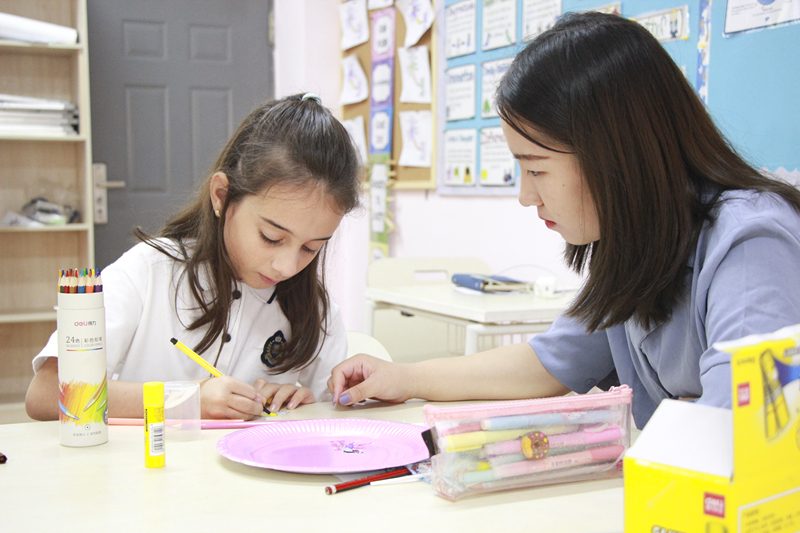
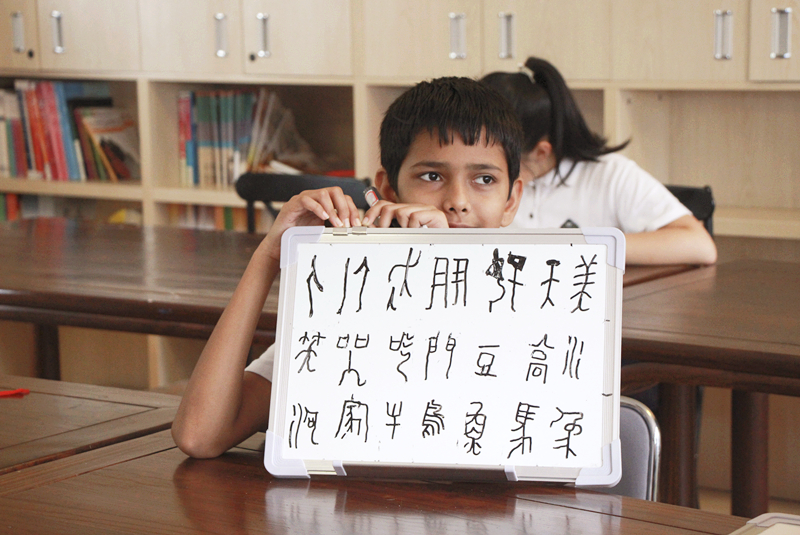
中文为非母语的对外汉语课程最大可能的兼顾到中小学等不同年龄的学生,最大限度地降低了汉语学习的难度,参照《国际汉语能力标准》以及《欧洲语言教学与评估框架性共同标准》等国际认可的语言能力标准,选择全球国际学校通用和国家汉办的专业权威性教材进行教学。对外汉语课程的总目标是让学生在学习汉语语言知识与技能的同时,进一步强化学习目的,培养自主学习和合作学习的能力,最终具备汉语语言综合运用能力。
CFL program takes into account students of different ages in primary and secondary school and minimizes the difficulty of learning Mandarin. Internationally recognized language proficiency standards, such as the Chinese Language Proficiency Scales For Speakers of Other Languages and the Common European Framework of Reference for Languages, as well as professional and authoritative teaching materials common to international schools around the world are used to conduct instruction. The overall goal of the CFL program is to enable students to learn Chinese language knowledge and skills, further strengthen their learning objectives, cultivate their ability to learn independently and cooperatively, and ultimately to have the ability to use the Chinese language comprehensively.
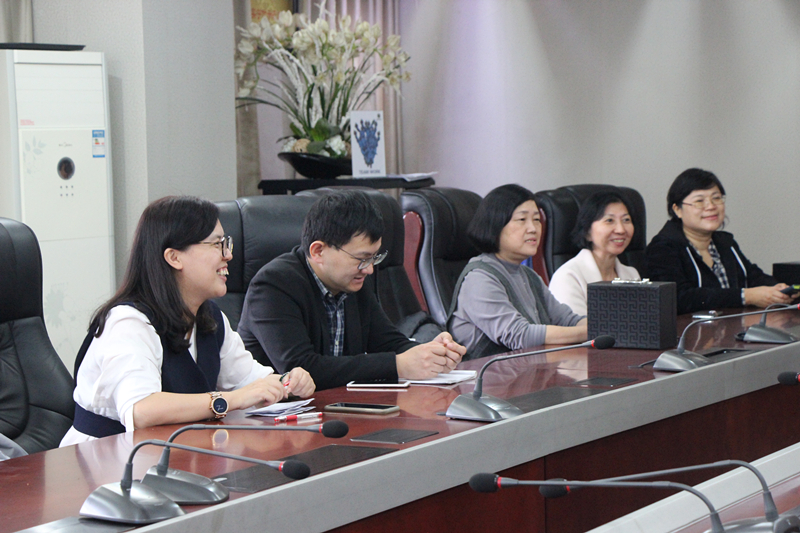
我们的教师队伍由一批充满热情、经验丰富和教法多样的专业教师组成。学校定期组织教师专业培训和举办学术交流活动。此前,我校曾与“台湾小教第一”的台北教育大学就两岸教育、教学理念和教学方法等进行深入的交流和学习。此外,学校还会不定期的邀请业界“大咖”进校交流,举办专题活动。曾邀请两岸读者熟知的资深儿童文学作家和绘本阅读推广人——“花婆婆”方素珍老师进校读绘本、聊故事和讲创意。
Our faculty is made up of a group of passionate, experienced, and diverse teachers. FLIS regularly organizes professional training for teachers and academic exchange activities. We had an in-depth exchange with the Taipei University of Education, the "No. 1 primary school in Taiwan", about study on cross-strait education, teaching philosophy and teaching methods, etc. In addition, FLIS will occasionally invite famous people to the campus for exchanges and special events. Mrs. Suzhen Fang, a promoter of picture book reading who is affectionately called as the "Miss Rumphius" by readers on both sides of the Taiwan Strait, was invited to read picture books, talk about stories and tell creative ideas with FLIS students.
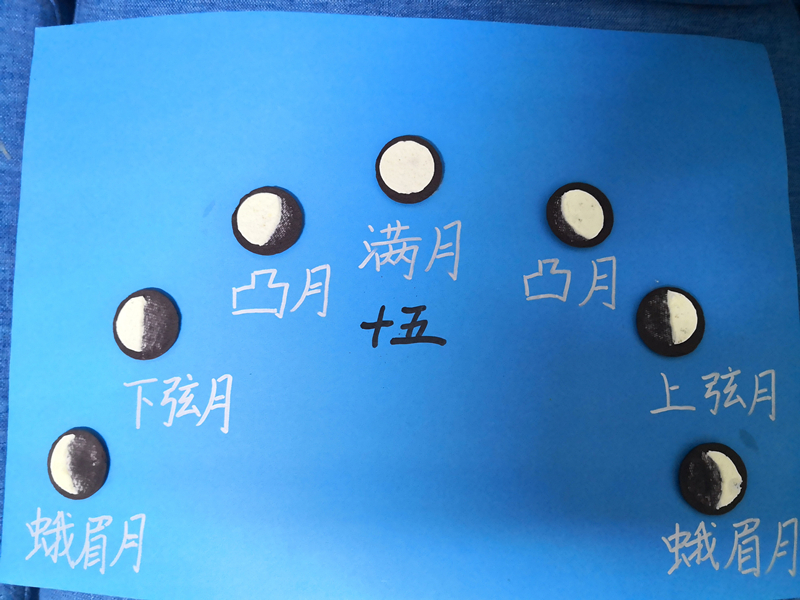
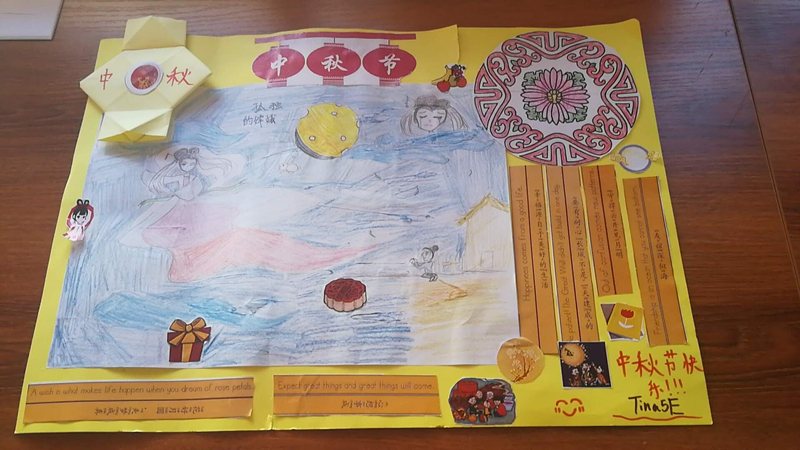
在课堂教学的基础上,FLIS中文部亦注重拓展多姿多彩的课外活动:结合中华传统节日专题举办了“新春联欢”、“端午‘赛龙舟’”、”重阳敬老”及“中秋知识‘博饼’”等主题活动;定期举办各类提升中文能力的竞赛,如“汉字听写比赛”、“汉字书写比赛”、“朗诵比赛”、“演讲比赛”、“课外阅读打卡竞赛”和专题研究等竞赛活动,充分发挥了学生的主动性和创造性。
On the basis of classroom teaching, the FLIS Chinese Department also focuses on the development of a variety of extracurricular activities: traditional Chinese holiday activities such as "Chinese New Year Celebration", "Dragon Boat Race", " Double Ninth Festival Activities" and "Mid-Autumn Mooncake Gambling", etc.; regular competitions to improve Chinese language proficiency, such as "Chinese Character Dictation Competition", "Chinese Character Writing Contest", "Recitation Contest", "Speech Contest", "Extracurricular Reading Contest" and thematic research, etc., are held to give full play to the initiative and creativity of students.
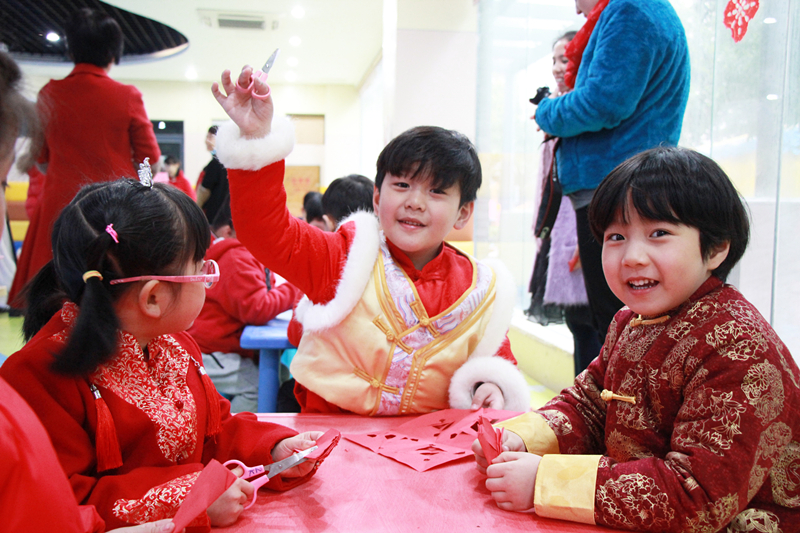
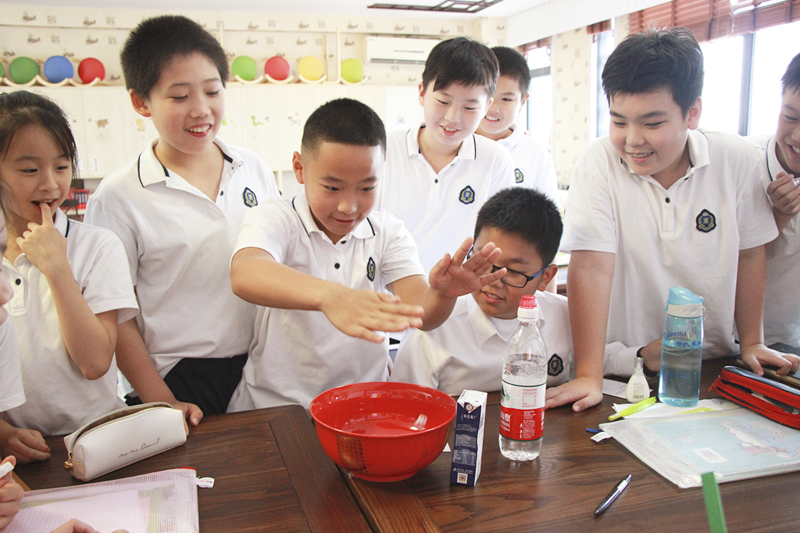
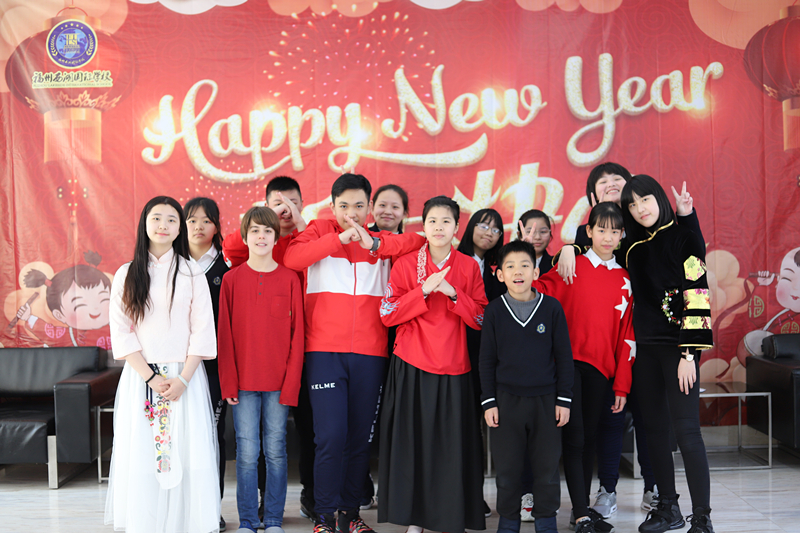
在福州西湖国际学校的中文课堂中,学生是课堂教学的主体,教师是课堂教学的引导者,教师始终以学生作为课堂的中心,尊重学生的主体性和个体差异。感谢家长与孩子对FLIS的信任,未来的教育之旅,我们也将与您一路偕行。
In FLIS Mandarin classroom, students are the main body of the classroom, the teacher is the guide of the classroom, and the teacher always takes the students as the center of the classroom, respecting the subjectivity and individual differences of the students. Thanks to the trust of parents and students in FLIS, we will continue to contribute and collaborate together, working toward shared educational goals for students.